Lucy Letby was 80 per cent more likely to be on duty when babies unexpectedly collapsed or died, inquiry hears from nursing chief
Lucy Letby was 80 per cent more likely to be on duty when babies collapsed or died unexpectedly, a nursing boss told the public inquiry today.
Sian Williams, deputy director of nursing at the Countess of Chester Hospital, found the neonatal nurse was regularly present when babies fell ill shortly after she killed her last two victims in June 2016.
The head of nursing claimed she had repeatedly urged senior managers to go to the police, but said they refused and ‘wouldn’t listen’.
Instead, Letby was removed from the unit and it was another ten months before officers were called in to investigate.
The 34-year-old is serving 15 life sentences after being convicted of murdering seven babies and attempting to murder another seven between June 2015 and June 2016.
Williams told the inquiry that Letby (pictured) was likely on duty during the incidents
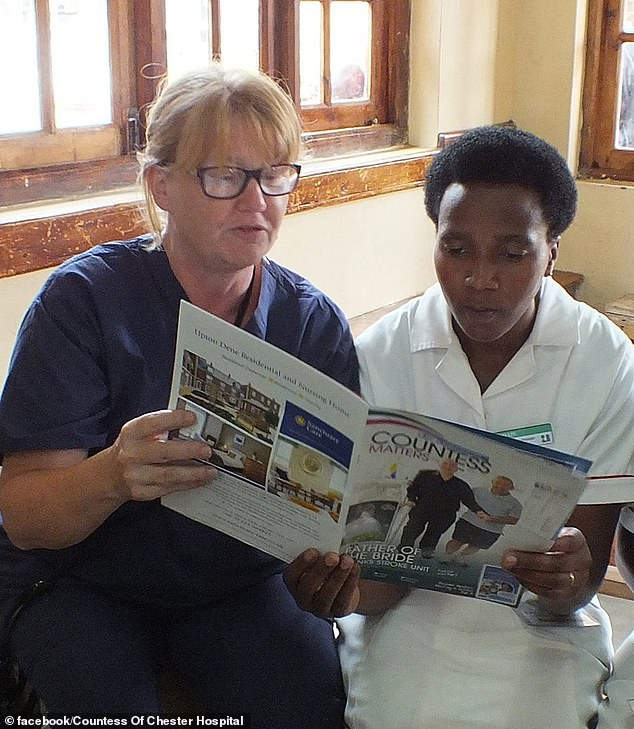
Deputy director of nursing Sian Williams (left) spoke at today’s public inquiry
The Thirlwall Inquiry, which is investigating Letby’s crimes, heard that Ms Williams was asked to analyze staff rosters and medical records after doctors raised suspicions that Letby deliberately harmed patients, following the deaths of two triplet brothers during successive shifts in June 2016.
“I remember the consultants had done a staff assessment themselves and came up with the name Letby, so we were instructed to go back and go through that, which me and Julie Fogarty (head of midwifery) did,” she said.
“We came to a similar finding as the doctors, that she (Letby) was 80 percent more likely to be on duty during or before a baby collapse.”
Ms Williams said she was so alarmed by the findings that she immediately reported them to the hospital’s medical director, Ian Harvey, and human resources director, Sue Hodkinson.
She also spoke to Alison Kelly, the director of nursing, “a number of times” about involving the police.
She revealed that she had had previous experience of contact with police in another job over suspicions of a staff member tampering with equipment in a high dependency unit, and this left her feeling ‘uneasy’ about the decision made by senior managers at the countess not to go to work. to call officers to investigate.
She added: ‘I told them, I spoke to Alison Kelly a number of times and I remember Karen Rees (director of emergency care nursing) in my office saying we should go to the police, and she ( Alison Kelly ) said I took advice and that was it, she wouldn’t listen.
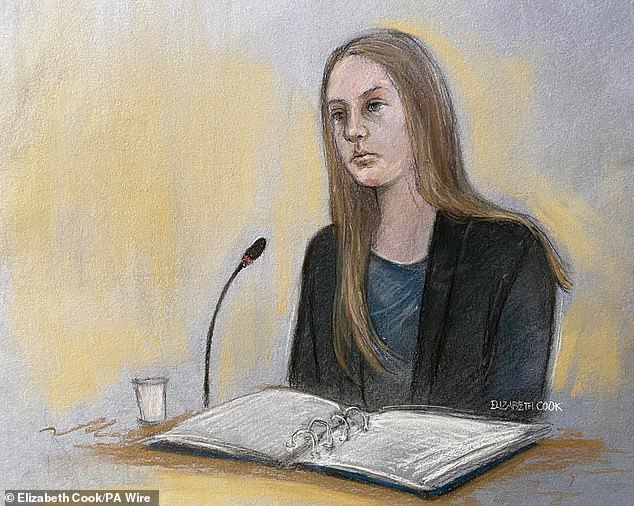
Court artist’s drawing of Lucy Letby giving evidence at her trial at Manchester Crown Court
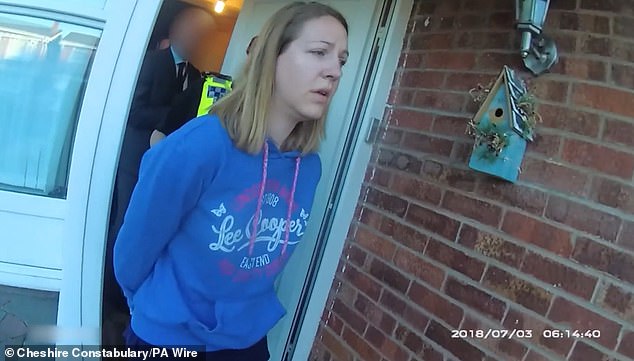
Body worn camera footage released by Cheshire Constabulary of the arrest of Lucy Letby
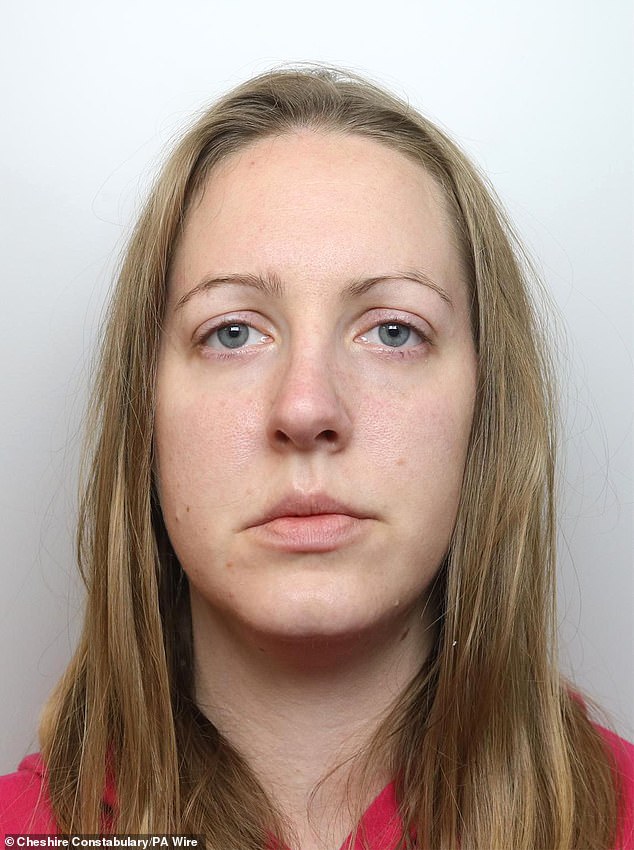
Letby is serving 15 life sentences after being found guilty of murdering seven babies and attempting to end the lives of seven more between 2015 and 2016
“The executives said they had sought advice and that we should do our own research first.”
Ms Williams admitted she had a responsibility to go to the police herself and regretted not doing so after realizing Letby was the common factor in the babies’ deaths.
The investigation found that after the deaths of the triplets, known as Babies O and P, counselors were so concerned about ‘foul play’ that they kept a bag of food given to one of them to check whether it had been tampered with . of.
But although involving the police was initially considered, notes from a meeting of senior managers a week later revealed that a decision had been made to conduct their own internal investigation and instead involve the Royal College of Paediatrics and Child Health switch to conduct an external investigation. .
Ms Williams broke down in tears and admitted the hospital had shown no compassion for the babies’ parents when they kept them in the dark about such tests for months – and even years – after suspicions were raised.
She agreed it was ‘regrettable’ that they had to find out about them from newspaper articles, but insisted Ms Kelly had told her what she ‘could and could not say to them’.
Ms Williams said: ‘I can’t argue that I’m defending effective communication here because it was bad. There is little doubt that it was bad.”
Rachel Langdale, counsel to the inquiry, said: ‘With little sympathy or understanding for their concerns and their position.’
She tearfully replied: ‘I can’t dispute it, I haven’t been in their position and on reflection this is an area we could have improved.’
Ms Williams also admitted ‘misleading’ the mother of Baby C, a premature boy killed by Letby, at a meeting to discuss the Royal College review, when she was told the inquiry was simply a ‘formality was to control staffing levels’.
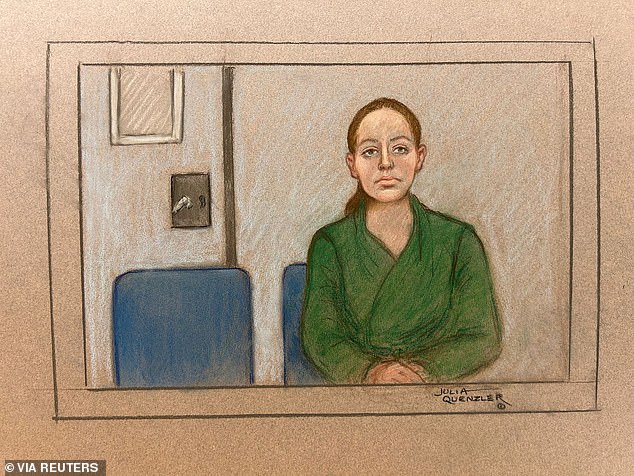
Lucy Letby appears via video link during an appeal against her conviction for the attempted murder of a newborn baby, at the Court of Appeal in London, Britain, October 24
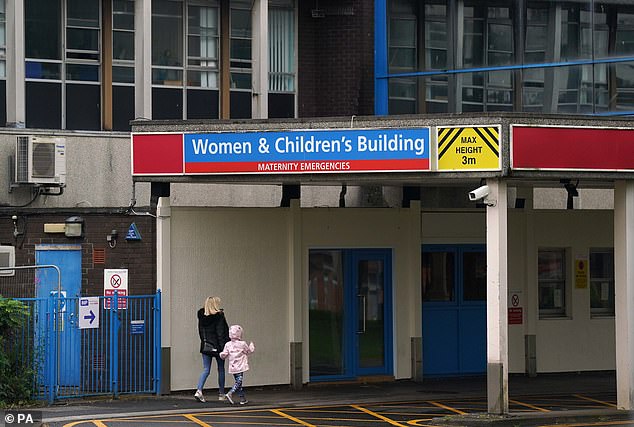
Lucy Letby worked in the neonatal unit at The Countess of Chester Hospital (photo, file)
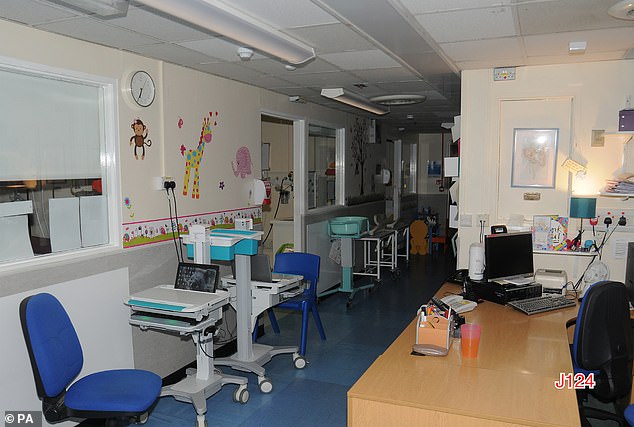
Image of the corridor within the Neonatal Unit of the Countess of Chester Hospital (showing the entrances to nurseries 2,3 and 4)
Richard Baker KC, representing Baby C’s parents, said: ‘You knew there was a real suspicion that a nurse had killed their baby and it was your view that the police should be called. It is misleading not to keep parents informed if that is a real concern.’
“Yes,” Mrs. Williams replied. ‘We were told what we could or could not say. As the investigation had not yet been completed, the management team still believed there was no foul play.”
Mr Baker continued: ‘You must have felt like you were part of a cover-up.’
She replied: ‘The whole thing made me feel uncomfortable, so I kept coming back to why they don’t call the police.’
Asked if she wanted to say anything to Baby C’s mother, who was at Liverpool Town Hall to listen to the evidence, Ms Williams said: ‘How desperately, how desperately sorry I am for the lack of communication and the whole situation, that on second thought it could have been so different.’
The investigation continues.
